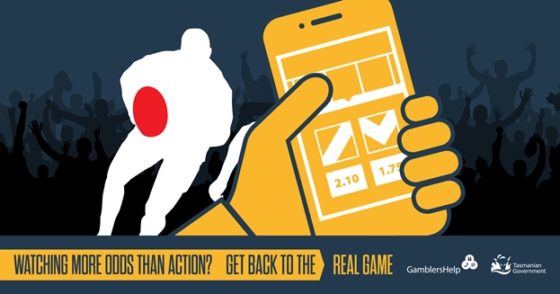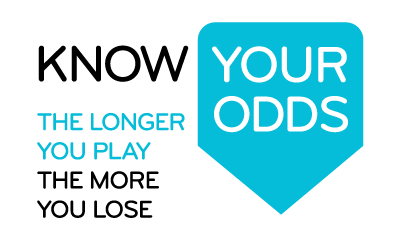
Sports Betting
Watching more odds than action?
How much do Australians bet on sport?
Over 500 000 Australian adults regularly bet on sport and 1-2 million Australian adults bet on sport at least once a year. In 2015-16, Australians lost around $921 million on sports betting, not including racing, pacing or greyhounds.
Who bets on sport?
Sports bettors are most likely to be men (88%), aged between 18 and 49 (75%) and in full time work (70%). In a recent study, over three-quarters of children (aged 8-16) correctly recalled the name of at least one sports betting brand and over one-quarter were able to identify four or more.
How many people have problems with sports betting?
About 41% of regular sports bettors have problems with their gambling. About 23% of regular sports bettors experience moderate to severe problems with their gambling.
What are the signs that sports betting might be becoming a problem?
A “bad beat” or a losing streak doesn’t automatically that you have problems with sports betting. But sports betting can be a problem if it starts to have an impact on your life.
Signs that might indicate that sports betting is becoming a problem include:
- Spending more money or time on betting than you plan to
- Thinking about betting when you are doing other things
- Betting more than you can afford to lose
- Chasing losses or needing to bet more to get the same feeling
- Borrowing money or selling things to get money to bet
- Neglecting other areas of your life such as relationships or work
- Having health problems caused by betting including stress or anxiety
- Having financial problems caused by betting (e.g. not being able to pay bills)
- Feeling like gambling has taken over or feeling guilty about betting
What can you do if you think you (or someone you know) might have a sports betting problem?
Get more information
Check how much you are spending on sports betting using the Gambling Calculator at Gambling Help Online.
Check whether you are at risk of having sports betting problems by using the Self-Assessment checklist at Gambling Help Online.
If you’re worried about someone else’s sports betting, check out the Helping Others section of Gambling Help Online.
Ask a Gamblers Help counsellor – available 24 hours a day, 7 days a week, no need to identify yourself. You can contact counsellors by phone on 1800 858 858 or you can talk to a counsellor online using real-time online chat or by using email.
Get some help
Try the tips for responsible gambling at Gambling Help Online.
Try the Self Help Tools at Gambling Help Online (anonymous login required).
Talk to a Gamblers Help counsellor by phone – available 24 hours a day, 7 days a week, no need to identify yourself. Just call 1800 858 858.
Talk to a Gamblers Help counsellor online – available 24 hours a day, 7 days a week, no need to identify yourself. You can chat to a counsellor in real time or email questions.
Talk to a Gamblers Help counsellor in person – available in business hours (Monday to Friday). To arrange an appointment, phone 1800 243 232.
Note. An anonymous login is required for online chat or email. Helpline calls from landlines are free, calls from mobile phones may be charged.

Research
The Sports Betting Campaign is based on sports betting research commissioned by the Department of Health and Human Services and undertaken by the University of Tasmania’s School of Social Sciences. The research report and literature review are available from the Department of Communities Tasmania’s Tasmanian Gambling Research web page.
The research looked at the proliferation, trends and risks, particularly to vulnerable groups, of sports betting and its promotion in Australia and internationally.
Some of the key findings were:
- the demographic of sports betting participants is clearly identified as younger men with full-time employment, higher socio-economic status, better education and access to the Internet
- the two identified risk groups for sports betting are young men, and children and adolescents
- the perceived saturation of the sporting experience through betting-related advertising had altered the experience of watching sport, by aligning sports betting with fans’ overall experiences of a game and encouraging individuals to bet live during the game
- sports betting (along with doping and match fixing) was seen as a challenge to the integrity of sport in Australia, particularly at grass-roots and semi-professional levels.
In response to the research, the Government has developed a community education campaign concentrating on sports betting.
The campaign is aimed at young men at risk of developing issues with sports betting. It triggers consideration of the impacts of sports betting. The key message is “Get back to the real game” which refers to getting back to watching sport for fun rather than with a financial involvement.


